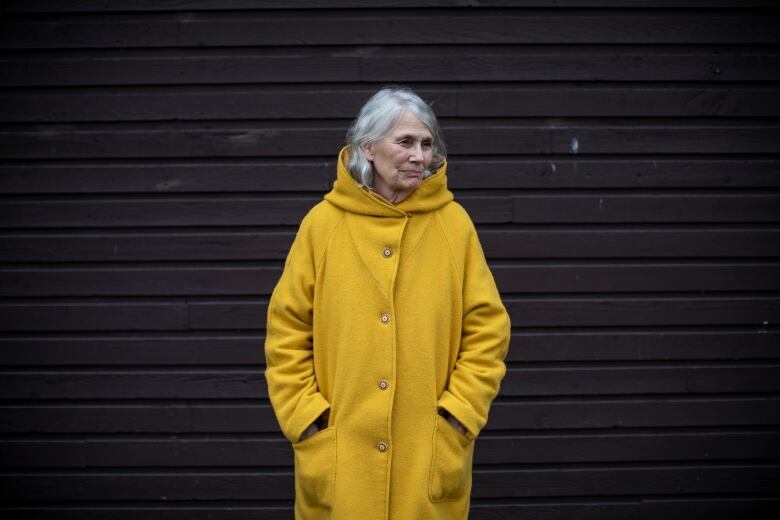Hong Kong social entrepreneur pitches rental affordability solution for Vancouver

What can the most expensive real estate market in the world teach Vancouver about rental affordability?
Social entrepreneur Ricky Yu has an idea. In Hong Kong, he’s formed a network of landlords willing to rent out their apartments at a below-market rate to low-income single mothers who are vetted by his company.
And now, the 51-year old is considering expanding to B.C.’s Lower Mainland, and has already reached out to some individual property owners in B.C.
“I’m interested in introducing this program to other big cities especially Vancouver, because there’s a high proportion of Chinese that makes me feel easier.”
It’s a tempting success story, but one that might not sit well with B.C. laws which don’t allow the fixed-tenure leases his housing program, called Light Be, relies on. The program also requires tenants to undergo a series of personal development programs that train them to become economically self-sufficient — something a Vancouver politician criticizes for being too exclusive.
Social enterprise Light Be
Yu is a multinational company executive turned CEO of Hong Kong social enterprise Light Be, a for-profit company that aims to achieve social outcomes and reinvests its profits in its operation.
His 10-year-old company’s social housing initiative, called Light Home Scheme, has been called “highly commendable” by the Hong Kong government in addressing the shortage of low-rent housing there. A Hong Kong NGO launched a similar program two years ago.
Prospective Light Home tenants, who must be single mothers with children, are referred by Hong Kong government social workers. Light Be’s staff then vet applicants via interviews or home visits. Yu also reviews each application. Tenants commit to personal development programs as part of the tenancy terms.
The benefit for tenants is rent that’s 60 to 80 per cent below market rate, depending on each mother’s finances.
Light Be makes its money by taking a variable percentage of the rent paid to landlords, and is sponsored by two charitable foundations affiliated with prominent real estate developers in Hong Kong.
Yu says he doesn’t need to reach out to landlords of the otherwise-vacant apartments — they call him.
“Actually they could call us every month non-stop.”
Landlords do not receive any tax breaks in Hong Kong for joining the Light Be network.
Yu said some Canadians living in B.C. are already part of the network of landlords who lease their vacant Hong Kong apartments with Light Be. Many are “concerned about the social problems and try to do something and contribute to the low income citizens,” said Yu.
Also, “they need an agent to make good use of their apartments,” he said.
The latest Hong Kong government data shows a 4.3 per cent vacancy rate in private housing compared to a one per cent vacancy rate in Lower Mainland apartments.
B.C. landlord welcomes Light Be
It’s an idea that B.C. property investors have discussed before, said William Blake, a co-owner of more than 1,000 residential units across B.C.
“We have quite a few people who were originally from Hong Kong … and we have talked about Light Be and other programs like that,” he said.
Blake said there are lots of landlords in B.C. who would be willing to lower their rents “to help those who fall through the cracks,” but he feels landlords get inadequate protection from the government if tenants refuse to pay or damage the homes.
The property investor said he hopes Light Be comes to Canada because of the vetting and protection it provides to landlords.
Light Be requires tenants to move out after three years. Yu said his social enterprise has never accepted “alumni” to reapply.
“Before they move out, they should’ve significantly changed their lifestyles, and live in a financially … more sustainable manner,” he said.

Fixed tenure is an issue
But those same terms that might feel like protection to landlords look “exclusive” to Vancouver Coun. Jean Swanson.
Moving after three years isn’t good for a family, and people with mental health issues will have a hard time getting into a program similar to Light Be, she said.
“Housing should be a basic human right,” said the longtime advocate for affordable housing.
The idea gets an even firmer ‘no’ from the B.C. government.
“Landlords could not include a maximum length for tenure as fixed-term leases are no longer allowed in B.C.,” said the B.C. Ministry of
Richmond Coun. Carol Day, who applauds Light Be, said the ministry should look at the Hong Kong initiative’s fixed tenure “through a different lens.”
“This is not an ordinary landlord-renter situation … it is a charitable arrangement,” said Day. She said fixed-term leases should also apply to modular housing.
Andy Yan, urban planning professor of Simon Fraser University, said Light Homes are a form of transitional housing that may work for populations in B.C. who try to “develop a level of stability in their lives,” such as youth who are just out of the government care system, newcomers or certain ethnocultural communities, but this housing program does not address the problem of housing security for senior tenants with declining incomes.

‘Difficult to scale’
Thom Armstrong, executive director of the Co-operative Housing Federation of B.C., said Light Be’s private approach is a “realistic response” to insufficient government investment on housing, but the initiative is unlikely to reach a large enough scale to have an impact.
Across Hong Kong, there are 120 Light Homes compared to over 780,000 public rental housing units.
Yu is optimistic: “We expect ourselves [to] continue to grow about 100 per cent every three years.”
But he acknowledges there are limitations, saying Light Be “is not trying to address all housing, poverty and inequality issues.” He says Light Be will conduct a feasibility study on how to adjust Light Home Scheme in compliance with B.C. laws.
Yan said a pilot study would be needed to measure the social and economic outcomes of the program.
